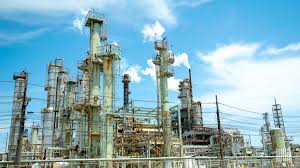The refining industry plays an essential role in the global economy, transforming crude oil into useful products such as gasoline, diesel, jet fuel, and petrochemicals. These products are fundamental to modern life, powering transportation, heating homes, and serving as the raw materials for countless goods. However, the refining process is energy-intensive and has significant environmental impacts. As the world becomes more environmentally conscious, the refining industry faces mounting pressure to adopt eco-friendly practices to reduce its carbon footprint and minimise its ecological impact.
Environmental Challenges of Refining
Refining crude oil involves complex chemical processes that release various pollutants, including carbon dioxide (CO2), sulphur dioxide (SO2), nitrogen oxides (NOx), volatile organic compounds (VOCs), and particulate matter. These emissions contribute to air pollution, acid rain, and climate change. Additionally, refineries generate large amounts of waste, including hazardous materials that can contaminate soil and water if not properly managed.
The industry also consumes significant amounts of water and energy, exacerbating its environmental impact. Water is used for cooling, processing, and cleaning, leading to the generation of wastewater that contains contaminants. Moreover, the energy required for refining is often sourced from fossil fuels, further contributing to greenhouse gas emissions.
Incorporating carbon capture solutions for refineries is a key strategy for reducing greenhouse gas emissions and advancing towards a more sustainable energy future.
The Importance of Eco-Friendly Practices
Adopting eco-friendly practices in the refining industry is crucial for several reasons:
Reducing Environmental Impact
Implementing sustainable practices helps to minimise the industry’s contribution to pollution and climate change. By reducing emissions of greenhouse gases and other pollutants, refineries can play a significant role in protecting air quality and mitigating global warming. This can be achieved through the use of cleaner technologies, such as advanced catalysts and energy-efficient processes, as well as by adopting renewable energy sources to power operations.
Regulatory Compliance
Governments worldwide are tightening environmental regulations to combat climate change and protect public health. Refineries that fail to comply with these regulations face penalties, legal action, and the potential for shutdowns. By adopting eco-friendly practices, refineries can ensure compliance with these regulations and avoid the financial and reputational risks associated with non-compliance.
Economic Benefits
Eco-friendly practices can also lead to economic benefits for refineries. Energy-efficient technologies and processes can reduce operational costs by lowering energy consumption. Additionally, waste reduction and recycling efforts can minimise disposal costs and create new revenue streams. Investing in sustainable practices can also enhance a company’s reputation, leading to increased customer loyalty and potentially attracting investors who prioritise environmental, social, and governance (ESG) criteria.
Community and Stakeholder Relations
Refineries are often located near communities that are directly affected by their operations. By adopting eco-friendly practices, refineries can reduce their impact on local communities, improving public health and fostering better relationships with stakeholders. This can lead to increased support from local governments and communities, which is essential for the long-term viability of refinery operations.
Strategies for Implementing Eco-Friendly Practices
Refineries can implement several strategies to become more environmentally friendly:
- Energy Efficiency: Upgrading equipment and optimising processes to reduce energy consumption.
- Pollution Control Technologies: Installing advanced filtration and scrubber systems to capture emissions and reduce air and water pollution.
- Waste Reduction: Implementing recycling programmes and reducing the generation of hazardous waste.
- Use of Renewable Energy: Integrating renewable energy sources such as solar or wind power into refinery operations.
- Research and Innovation: Investing in research and development to discover new methods and technologies for sustainable refining.
Conclusion
The refining industry is at a crossroads where the need for energy and materials must be balanced with environmental stewardship. By adopting eco-friendly practices, refineries can reduce their environmental impact, comply with regulations, and reap economic and reputational benefits. As global energy demand continues to rise, the industry’s dedication to sustainability will be crucial in driving a more environmentally friendly future.


